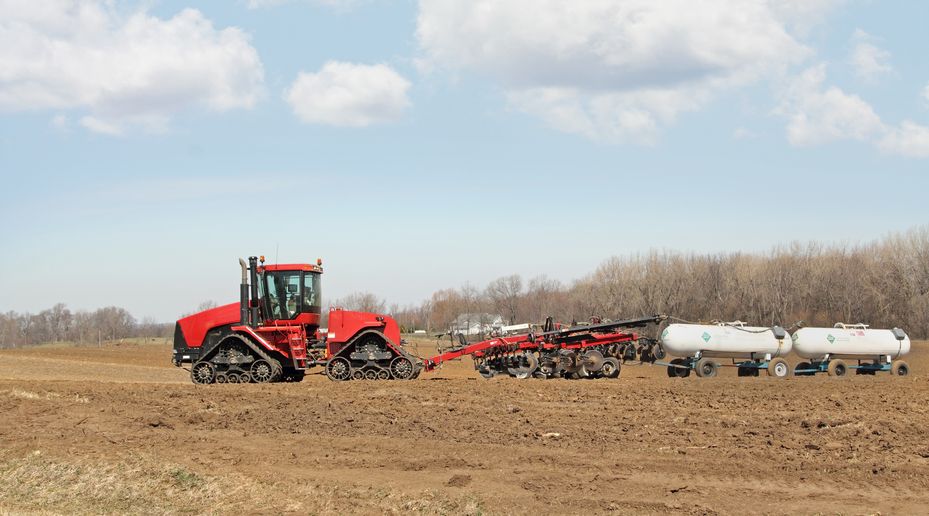
Getting a "true picture" of ammonia emissions in Northern Ireland remains "one of the biggest challenges" for the agri-food industry and must be addressed "urgently".
The comments by the Ulster Farmers’ Union (UFU) were made following the publication of a report on ammonia emissions by an expert working group.
Ammonia is a pungent gas produced in relatively large quantities from animal waste, concentrations of which are greatest in areas with the most livestock farming.
According to Northern Ireland's Department of Agriculture, Environment and Rural Affairs (DAERA), when released into the atmosphere, it increases the levels of air pollutants that are harmful to human health.
Agriculture is the dominant source of ammonia emissions, making up 93% of Northern Ireland’s current emission levels, according to the department.
The Expert Working Group on Sustainable Agricultural Land Management for Northern Ireland has produced the report, entitled ‘Making Ammonia Visible’, which seeks to improve understanding of the gases within agriculture.
The group has made recommendations on how the industry should go forward until knowledge on ammonia is further improved.
'A lot to answer for'
However, UFU president Barclay Bell said the Northern Ireland Environment Agency (NIEA) and DAERA have "a lot to answer for" when it comes to the approach taken to tackle ammonia emissions.
The farming union said DAERA are using "flawed science" to measure ammonia emissions.
“The report largely vindicates our views that the department have got it wrong when it comes to mapping ammonia emissions in Northern Ireland,” Mr Bell said.
“We cannot understand how they have arrived at the decisions they have. There has been a complete lack of transparency and communication with industry has been poor.
“It is no secret that a number of planning applications and Tier 2 Farm Business Improvement Scheme applications are being held up as a result of issues with ammonia.
Mr Bell added: “We have been critical of the way DAERA and NIEA have dealt with the issue. We want them to clarify and explain why the measuring of ammonia emissions is different here than in the rest of the UK. We believe the science they are using in Northern Ireland is flawed and that a more robust evidence baseline is needed.”
'Many unknowns'
The UFU said it believes the report shows that there are still "many unknowns" in relation to ammonia issues in Northern Ireland and more research is needed.
“Farmers are the custodians of the countryside. We recognise the importance of protecting the environment and have demonstrated a commitment to tackling water quality issues and greenhouse gas emissions through a partnership approach.
“DAERA and NIEA need to recognise the actions farmers have already taken. A meaningful partnership approach between the government and industry would go a long way in helping to tackle this serious issue,” Mr Bell explained.
